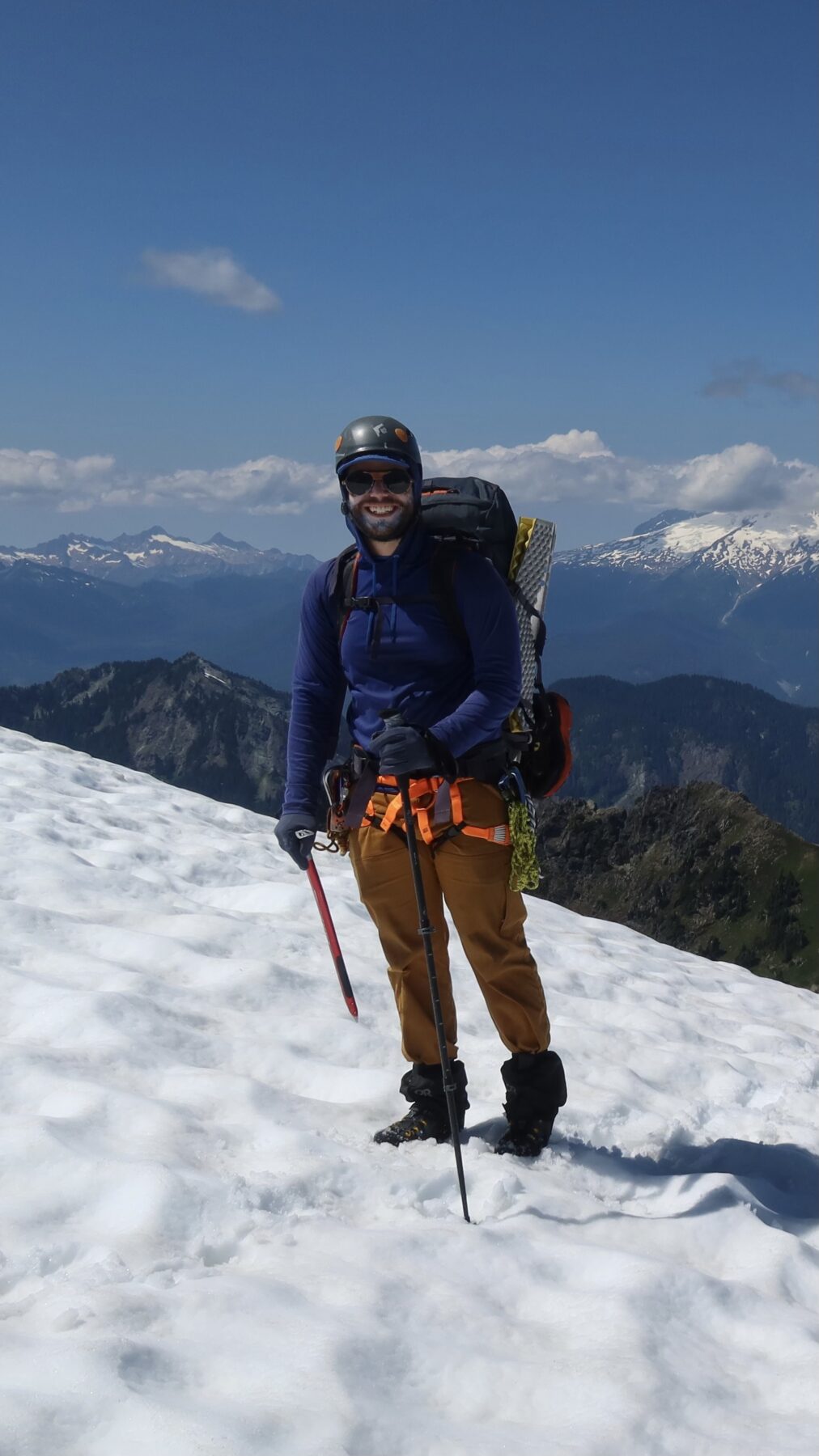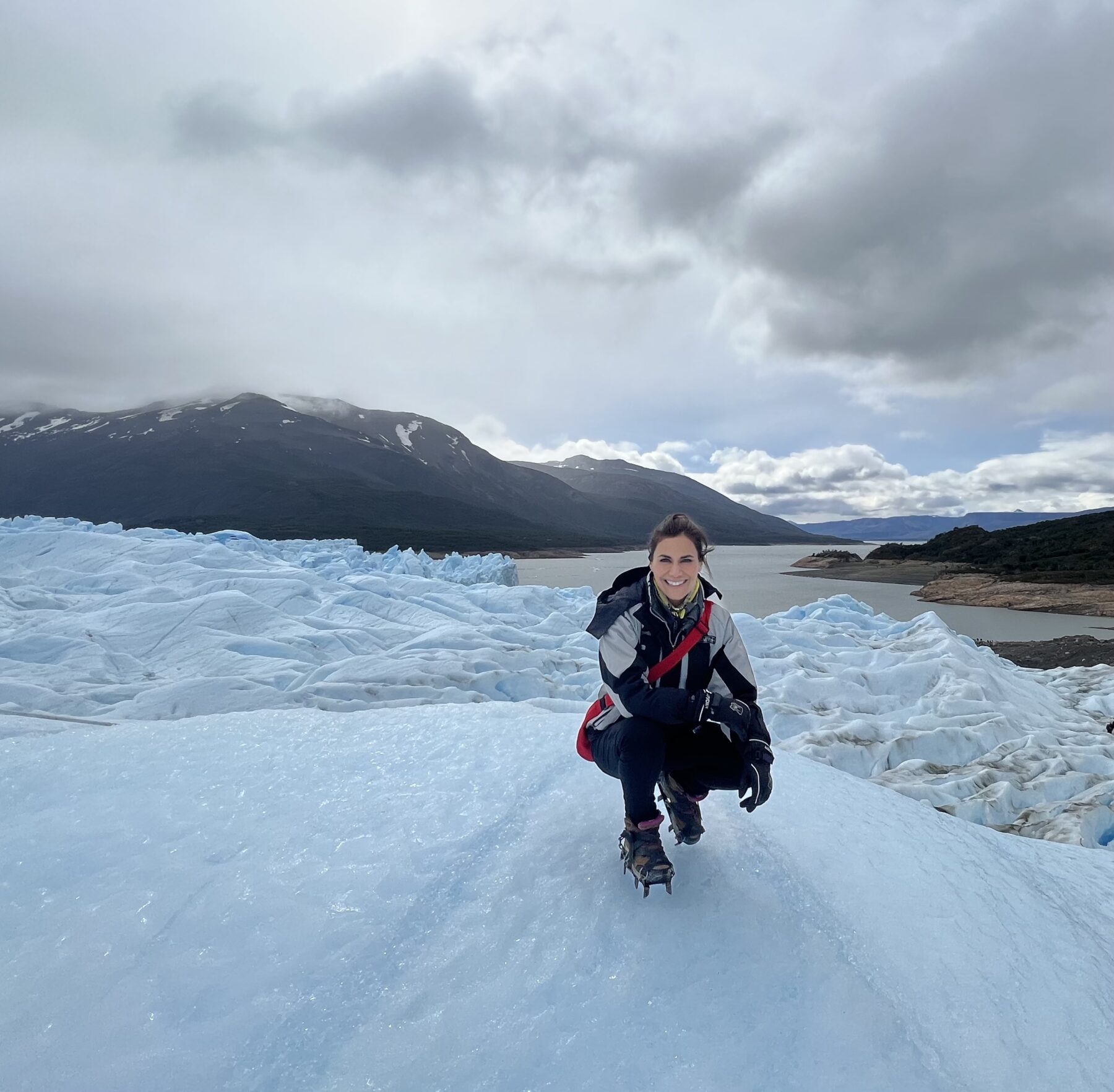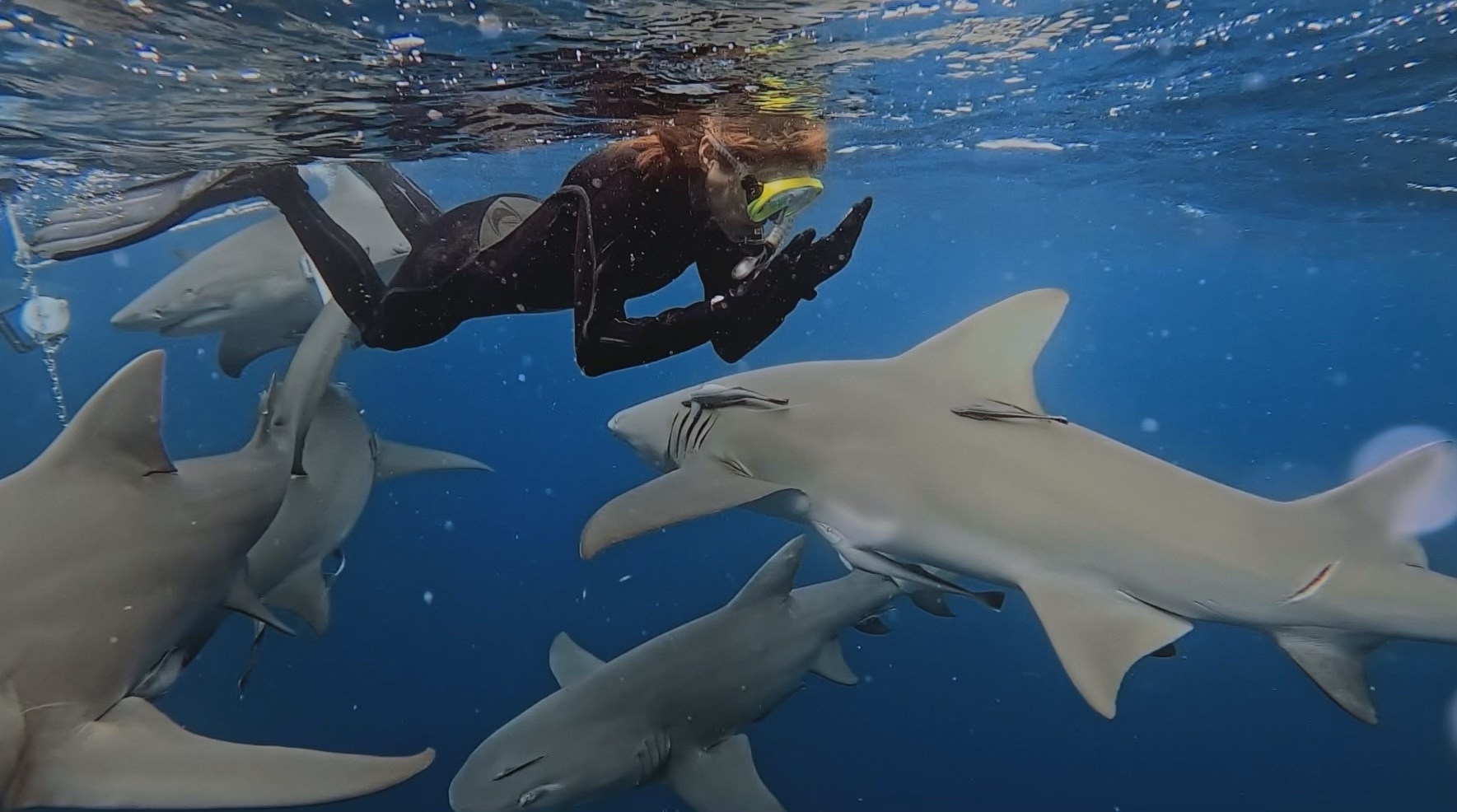
The Salton Sea was once a beautiful tourist destination for Californians. Fueled by the Colorado River, it was a playground for the wealthy, with a landing strip and yachts, in the 1950s and ‘60s. Now it’s stricken with drought, increased salinity levels, pesticides, arsenic, copper and selenium.
“The lake looks amazing, but then you get close, you realize that the smell is terrible, that people are suffering from asthma,” said Vanessa Hauc, anchor and director of “Planeta Tierra,” Noticias Telemundo’s Environmental Research Unit.
The community is largely Latinos and agricultural workers, she said. Children are suffering from nosebleeds and headaches. “Half of the Latino communities in the United States live in the 25 most polluted cities in the country, and our children are 40% more likely to suffer from asthma than children of any other ethnic group,” said Hauc, a Telemundo reporter for 18 years.
What is happening in places like the Salton Sea is not only an environmental crisis but a human health crisis.
While many think climate stories are about hurricanes, pollution and unstoppable fires, they are also about how weather and waste impact already-vulnerable communities. The environmental beat is also about inequity and injustice.
Communities of color often bear the brunt of industrial pollution, because of zoning decisions and racist practices like redlining. Black communities living in industrial areas like Newark, New Jersey, and “Cancer Alley” in Louisiana are disproportionately vulnerable to the negative effects of pollution from planes, trucks and trash incinerators.
“Anything that is not working for the planet is going to affect us directly, so we have to make those connections in the story,” said Hauc.

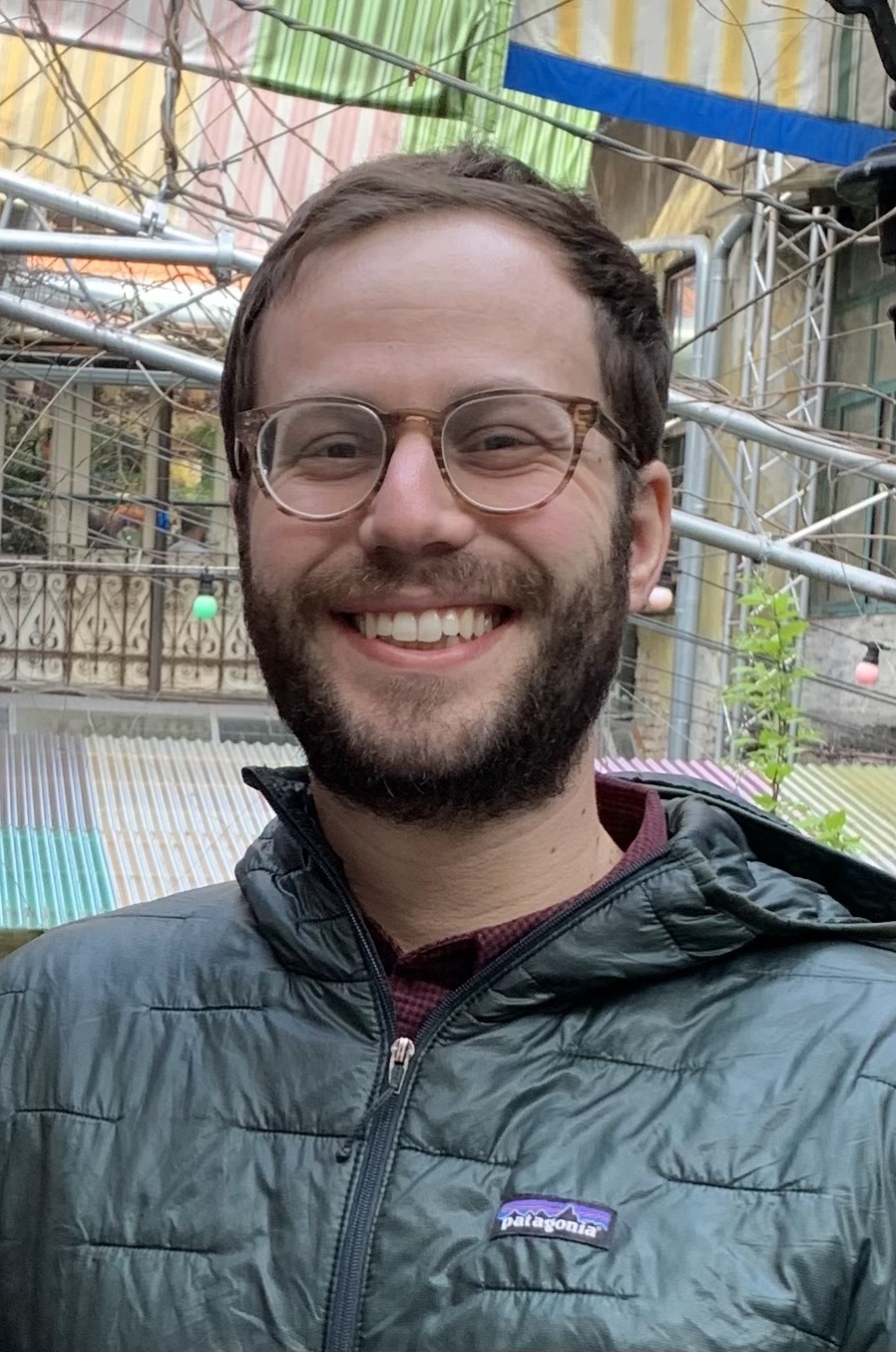
What is the environmental beat?
The science, climate and environmental beat has a broad audience, since all humans share ecosystems across Earth. An environmental reporter’s job is to find climate stories affecting those in their coverage area.
“We’re always thinking about what’s the real world impact, right? What does this look like for someone in their daily life?” said NBC News Science and Climate Reporter Evan Bush, who covers the Pacific Northwest. “Maybe 60% of the work that I do is reporter driven; topics that I’m interested in and want to pursue, I’ll pitch to editors. Then about 40% is where my editor will say, ‘Hey, we need a story on this.’”
Bush taps into research through resources like the American Association for the Advancement of Science’s EurekAlert!, a catalog of science-related news releases and studies, which he said helps him “get a sense for what university and academic circles are talking about.”
He also connects with local communities, as he did in Everson, Washington, after a major flood. “It’s hard to explain for readers the significance of climate change — this kind of big, abstract idea,” he said.
Four months after NBC News covered the initial events of the flood, Bush returned to Everson to see how the community was recovering. “One of the big things was housing,” he said. “They were already struggling with housing, and then the flooding hit. [Waiting] allowed scientists the time to make that connection to climate change.” Looking at this community’s experience, he said, speaks to how many other American communities aren’t prepared for disasters.
Hauc says her unit focuses on two pillars for coverage: reality and solutions. “There are the studies, there are the changes that we’re seeing every day, and this is something that we can just not ignore.”
Natural reactions to negative and overwhelming news like this can give audiences feelings of helplessness. “We don’t want to create fear, we don’t want to create panic,” said Hauc. “We really want them to understand that the solutions are on the table.”
If the story is about deforestation in the Amazon jungle, she said, her team will try to find an organization that is actively working on planting trees. They also offer everyday advice, such as showing people how to grow their own garden in a small space or how to use secondhand clothes creatively. “When you give information this way, people accept it, people take it, and they feel hopeful,” she said.
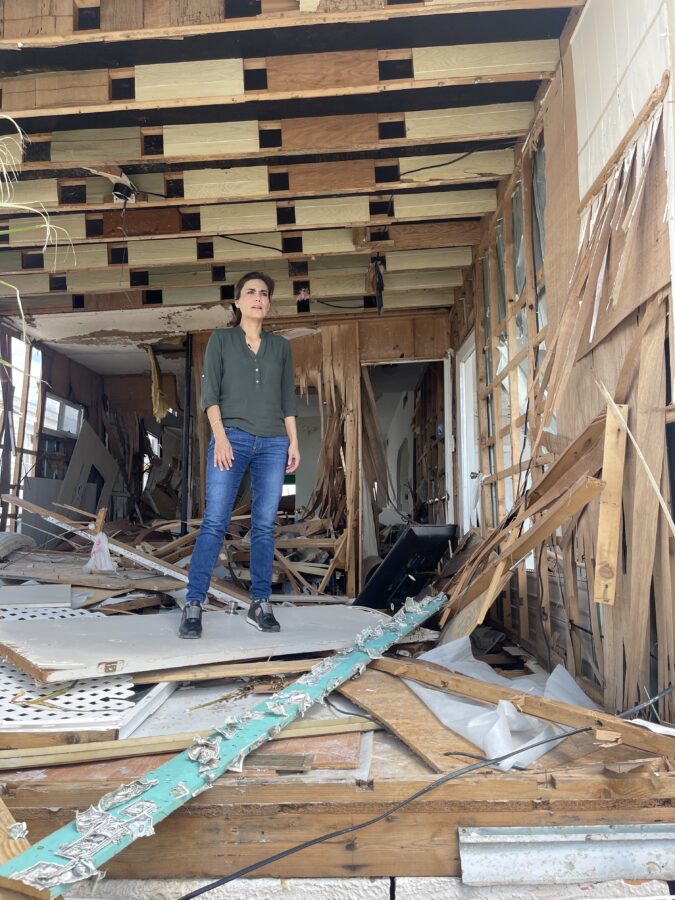
Advice to fellow and future environmental journalists
In any part of journalism, “there is a balance between finding your story and being open to the story revealing itself to you when you are there,” said Bush.
He encourages people to look at science and academic work with skepticism. “Sort out what good research is from bad research and know how to think critically about the work that’s out there,” he said. You need to know how to manage your time and prioritize stories since topics are endless. “If we had 1,000 reporters on these beats, they’d all still be busy,” he said.
Hauc sees the vast opportunity and necessity to expand this beat. “The Earth doesn’t have any borders,” she said. “We are all affected, and we are eventually going to be all affected.”
In a few years, news about the environment will increase as the efforts to combat climate change take effect. “By 2030, we’re going to need to cut emissions in half, and by 2050 we’re going to need to be net zero,” Hauc said about goals made in the 2015 Paris agreement. “Information about these transformations that we’re going through is going to be crucial.”
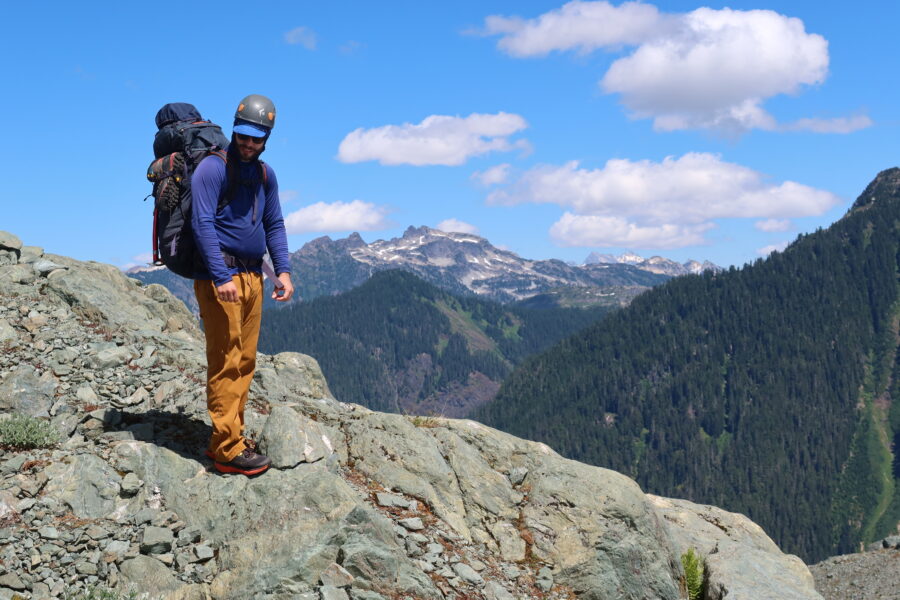
For the western U.S., Bush predicts there’s going to be a lot of focus on water management. With increasing rains and droughts, communities will need to figure out how to manage water in this new climate, “whether it’s too much water or too little.”
While the news can feel daunting, reporters can take heart in the reward of finding solutions. “If you’re willing to chase your curiosity for a purpose, that will lead you the right way in this career,” said Bush. “I don’t think you can learn journalism out of a book or a class — you just have to sit down and do it and ask questions. You get to ask really smart people those questions, day in and day out. I feel like it’s a great honor to be able to solve my own curiosity, and then do that for readers as well.”
Hauc also is drawn to this work to better the lives of future generations. “My son was about 4 years old, and I remember that we saw a documentary about climate change, and he said, ‘Oh, my God, Mom, is this true? Can this really happen?’ And I unfortunately had to say, yes.”
But then he asked another question: What are you going to do? “And that question really just stuck with me for many days,” Hauc said. She answered that she would continue reporting on the environment. “The day that I leave this planet is going to be a bit better than the day that I arrived,” she said. “I think that is a motivation that just makes you unstoppable.”
